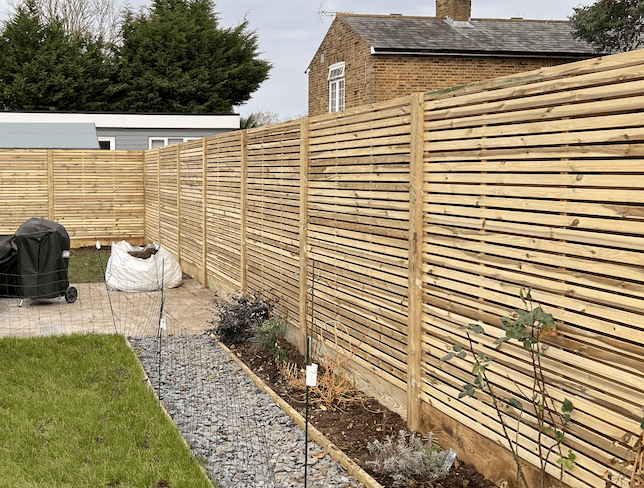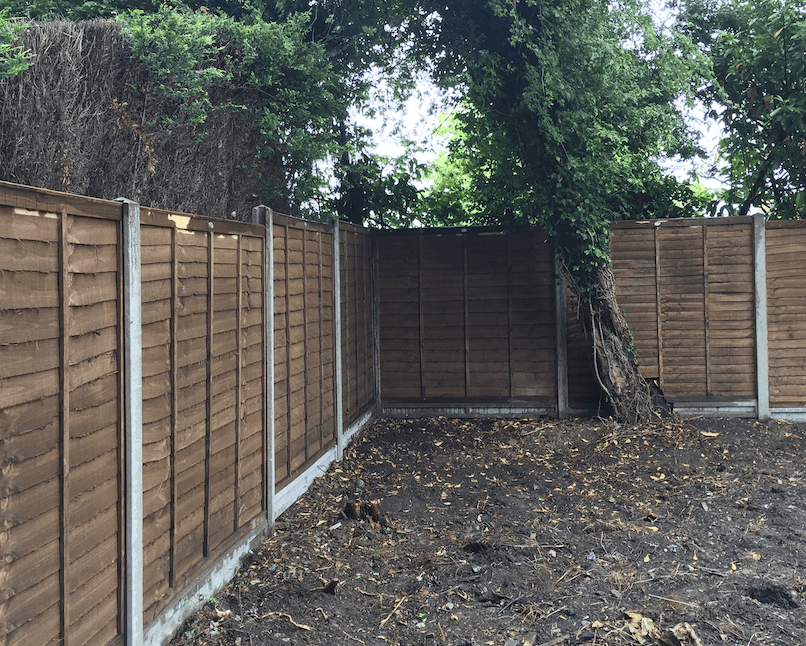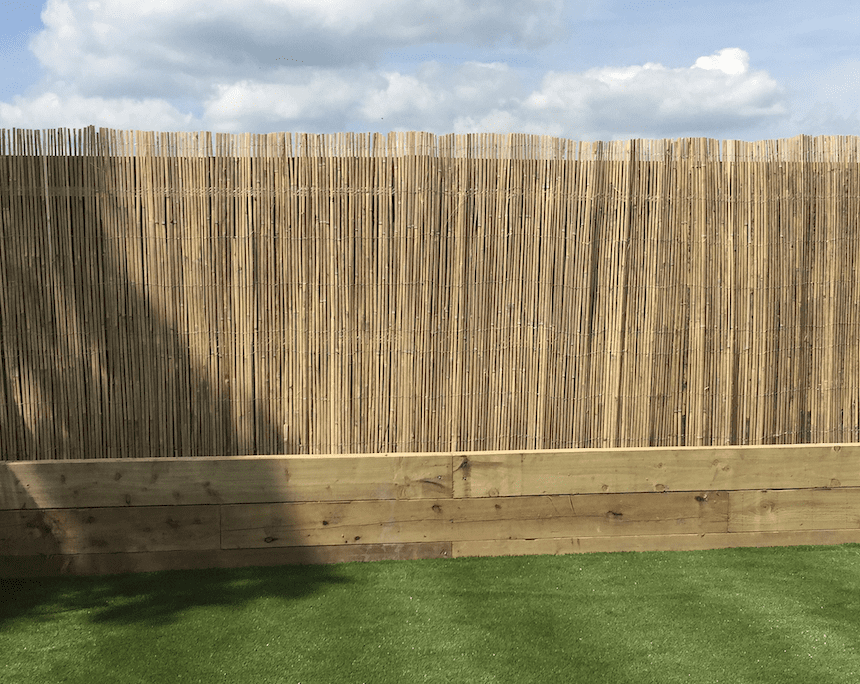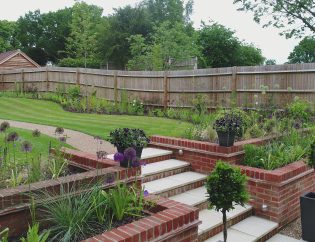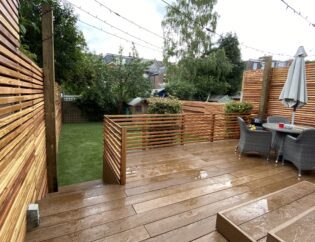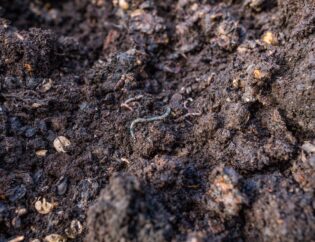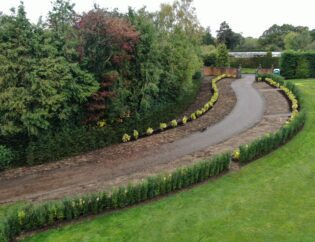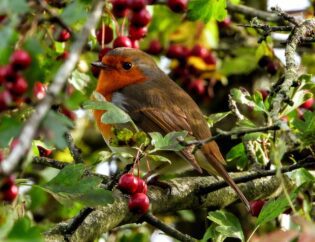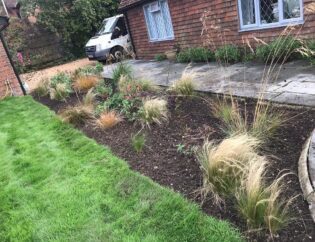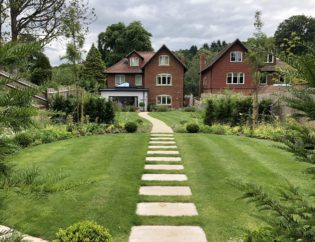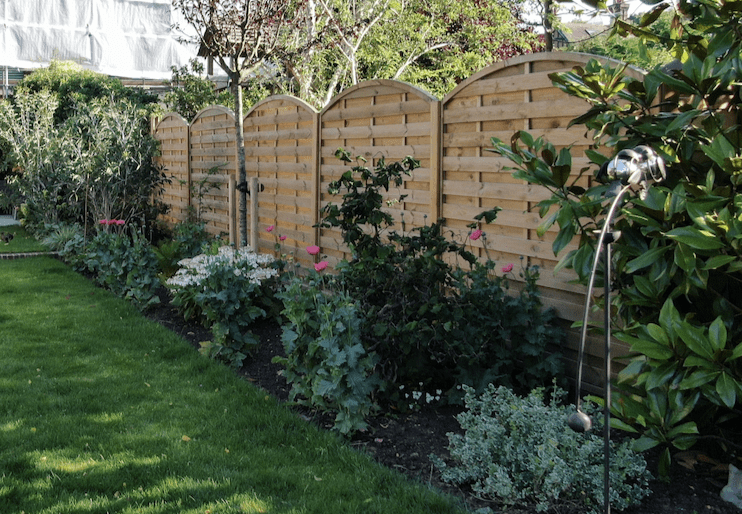
AYE’S ADVICE: LOOKING AFTER YOUR JACKSONS FENCING
Timber fencing is one of the most popular ways to define boundaries in British gardens. And as with most things in life, the better you look after your timber fencing, the longer it will last! So in this post, we’ll be showing you how to keep your maintenance on track, to keep your fence panels looking great for years to come.
To start with, let’s take a look at the three main types of fencing. Your fence panels will usually have been treated to prevent decay, and deter infestations of pests such as woodworm. There are two main types of treatment –dip treatment or pressure treatment. Alternatively, if you prefer a more organic material, natural fencing might be a better option for your garden. As the name suggests, natural fencing isn’t treated.
Dip treated fencing
Dip treated fencing and fence panels are usually darker brown or golden in colour. They tend to be less expensive than pressure treated fencing options, as the dip treatment is a relatively quick part process in the manufacture of the panels. It’s exactly what it sounds like –the panels are completely submerged into a vat of the treatment. It’s efficient, but the quick dipping process means that the treatment doesn’t soak right into the wood and will fade over time.
Maintenance
As dip treatment is a more basic preservation technique, we recommend that you re-treat dip treated wood within the first six months, and then annually going forward to ensure the wood lasts for as long as possible.
Cleaning
To clean the surface of the panel you can use a soft sponge to wash it gently with mild soapy water.
Pressure treated fencing
Pressure treated fencing will last longer than dip treated, as the treatment method forces preservatives right into the wood. Like those used in dip treatment, the preservatives protect against insects and decay. It is slightly more expensive than dip treated options, but requires less maintenance. You can paint pressure treated fencing straight away, using any outdoor paint or stain.
Cleaning
Use a soft sponge and mild soapy water to clean the surface of your fence panels. If you find green and white spots forming on the fencing, don’t worry –they are common in pressure treated wood, but can easily be brushed off.
Natural fencing
Natural wood fencing includes types such as chestnut palling and hazel and willow hurdles. Over time, natural wood will age and deteriorate more quickly, as it won’t have been treated in the manufacturing process. If you want to keep the original colour as pristine as possible, you can treat the wood with fence oil. However, many people choose natural wood for its organic look and gradually fading colour. Provided they are well secured, not in a wet area and not exposed to too much harsh weather, natural fences can last up to 10 years.
General fencing maintenance advice
- Regularly brush away leaves, soil and weeds from around the base of your fence to prevent build-up of debris and possible decay.
- Clearing and cleaning will also give you the opportunity to check your fencing for any areas of damage before they start to cause significant problems.
- If you do spot any damage, you can glue splits and broken pieces together using a waterproof glue and clamps. Just make sure that the wood is completely dry before you try to repair it.
- If your fencing begins to look too mossy, you can gently use a pressure washer to remove the top layer, before using a woodstain or paint to achieve the effect you want.
Regardless of the type of fencing you choose, regular maintenance and inspection is the key to keeping your fencing in great condition for years.
Aye’s Trouble-Shooting Tips
- Dip treated panels: You may need to keep a dip treated product off the ground –a pressure-treated gravel board is one way of doing this.
- Warped wood: Wood is a natural product and you can expect to see a degree of swelling and shrinking, which will not be uniform due to the different densities of each piece of timber used in your fencing. Any cracks or warping from this natural process are unlikely to affect the structure and strength of your fence.
- If you are interested in a more premium fencing type then you may want to consider Jacksons Fencing.
